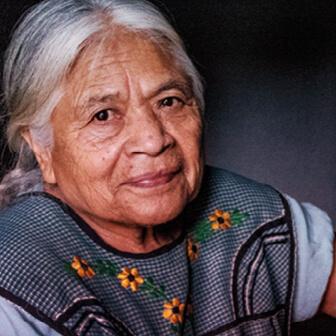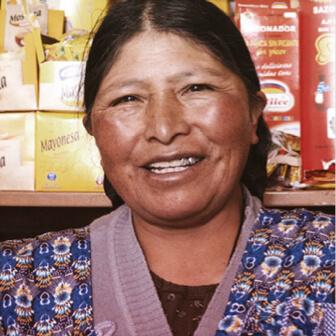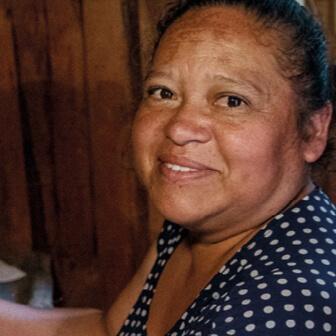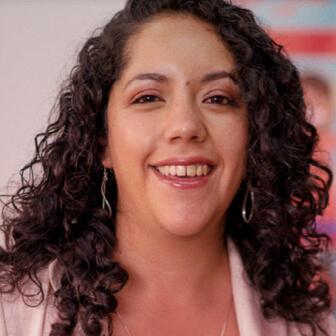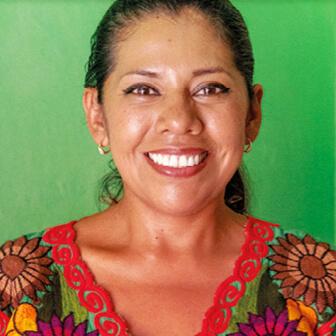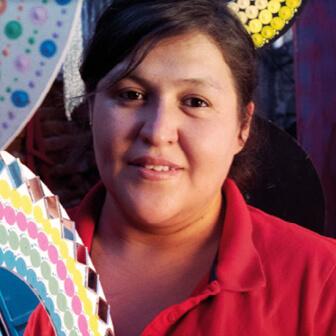GlaxoSmithKline and Pro Mujer: Making a Difference One Volunteer at a Time
23 agosto, 2011
Voices from the Field, Volunteer & Donor Stories
By Kerry Murphy, Field Sales Supervisor and PULSE Volunteer (June – December 2010)
When I first heard Andrew Witty, the CEO of GSK, speak of the GSK PULSE initiative, I knew I wanted to participate. The initiative, which was launched in 2009, empowers employees to make a sustainable difference for communities and patients in need by giving them an opportunity to use their professional skills and knowledge during a three or six month immersion experience within a non-profit or non-governmental organisation (PULSE Partner). I was aware of the support that GSK provides to the developing world and this was my chance to be a part of that work. Andrew has since mentioned that GSK has been sending product and monetary donations to non-profits and NGOs for quite some time. However, PULSE now also sends our most valuable resource— our people. So far, PULSE has sent nearly 200 GSK employees from 26 different countries working with 58 non-profit and NGOs in 39 countries.
Like most PULSE volunteers, I chose to do a six-month international assignment. I went to La Paz, Bolivia, to work with Pro Mujer, an international, non-profit women’s development and microfinance organization with some of the most amazing colleagues with whom I have ever worked. In addition to the financial services it provides women, Pro Mujer also provides access to high-quality, low-cost primary health care services, business and empowerment training and preventive health education.
While working at Pro Mujer, my role was to evaluate how the organization purchases, distributes, stores, and sells their medications to 65 health clinics throughout the country. I then helped develop a more efficient medication purchasing, stocking, sales and tracking system. Ultimately, I lived the GSK mission of ‘do more, feel better, live longer’ by helping women and children in Bolivia to recover sooner from illness so they could return to their daily lives— working and providing for themselves and their families.
I moved to La Paz – a city that sits at more than 14,000 feet – on June 18, 2010. It is a surreal experience coming down into La Paz from the airport in El Alto. La Paz is a bowl-shaped city with apartment buildings and taxis just like any other American city I am accustomed to. However, there are of course large cultural differences. Adjusting to just about everything took some time— altitude, climate (I landed in the middle of winter), food, transportation, and general ‘Bolivianisms.’ One ‘Bolivianism’ is the ritual greeting in Bolivia. I worked in an open area with cubicles with about 12 people. The ritual greeting is a kiss on the cheek. It is a lovely greeting, yet some days I felt funny kissing 12 people…. Did I mention every single morning to say hello and every afternoon to say good bye?
You learn a lot about yourself when you are in an environment very far out of your comfort zone. I returned in December of 2010 back to the LA area of California. Although I am glad to be back, I feel different. I now appreciate more fully all that we have here and try to keep that in my daily perspective. With a global vision, I hope to bring a different outlook to my work within GSK vaccines and to my personal interactions with friends, family and strangers. I am forever grateful to GSK and Pro Mujer for supporting such a program like PULSE and the personal and professional development opportunity it provides for people like me.
I am often asked, “What one thing helped you the most with your adjustment to La Paz”? I always reply that my sense of humor helped me get through the sometimes awkward conversations, misunderstandings or outright confusion. I grew to enjoy and treasure my friends and the community I had created. Now, I miss all that made La Paz so special–my cubicle, hanging my laundry to dry, sharing a minibus with strangers on my rides to work, drinking soda and/or juice with every meal and of course– the kissing greeting.
